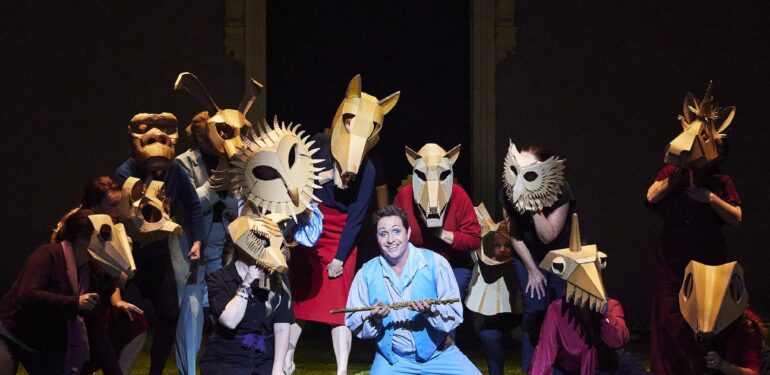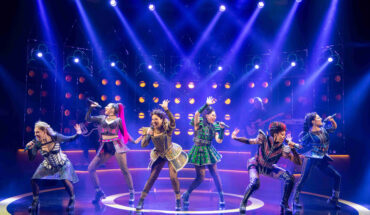Mozart’s The Magic Flute is an opera aptly used to introduce children and adults alike to the delightful world of opera. Kate Gaul’s reimagined production of The Magic Flute is understated – almost childlike. Elaborate costumes, over-the-top singing, and extravagant sets it is not. However, it’s simplicity makes room for a whimsical journey of love, life, and beauty all underscored by one of the world’s most beloved operas.
The Magic Flute was Mozart’s last. Premiering in Vienna in 1791, Mozart conducted the opera himself and had his sister-in-law Josepha Hofer in the role of Queen of the Night. Just a few months later, Mozart was dead; but his work lives on as a permanent fixture in Opera houses around the world. The opera is light-hearted, capricious, and comedic, which helps disguise serious themes about the meaning of life and the search for enlightenment in a manner that’s palatable for all ages. The opera is in two acts and follows the adventures of Prince Tamino and his comical companion Papageno on their search to rescue the Queen of the Night’s daughter Pamina from the high priest Sarastro.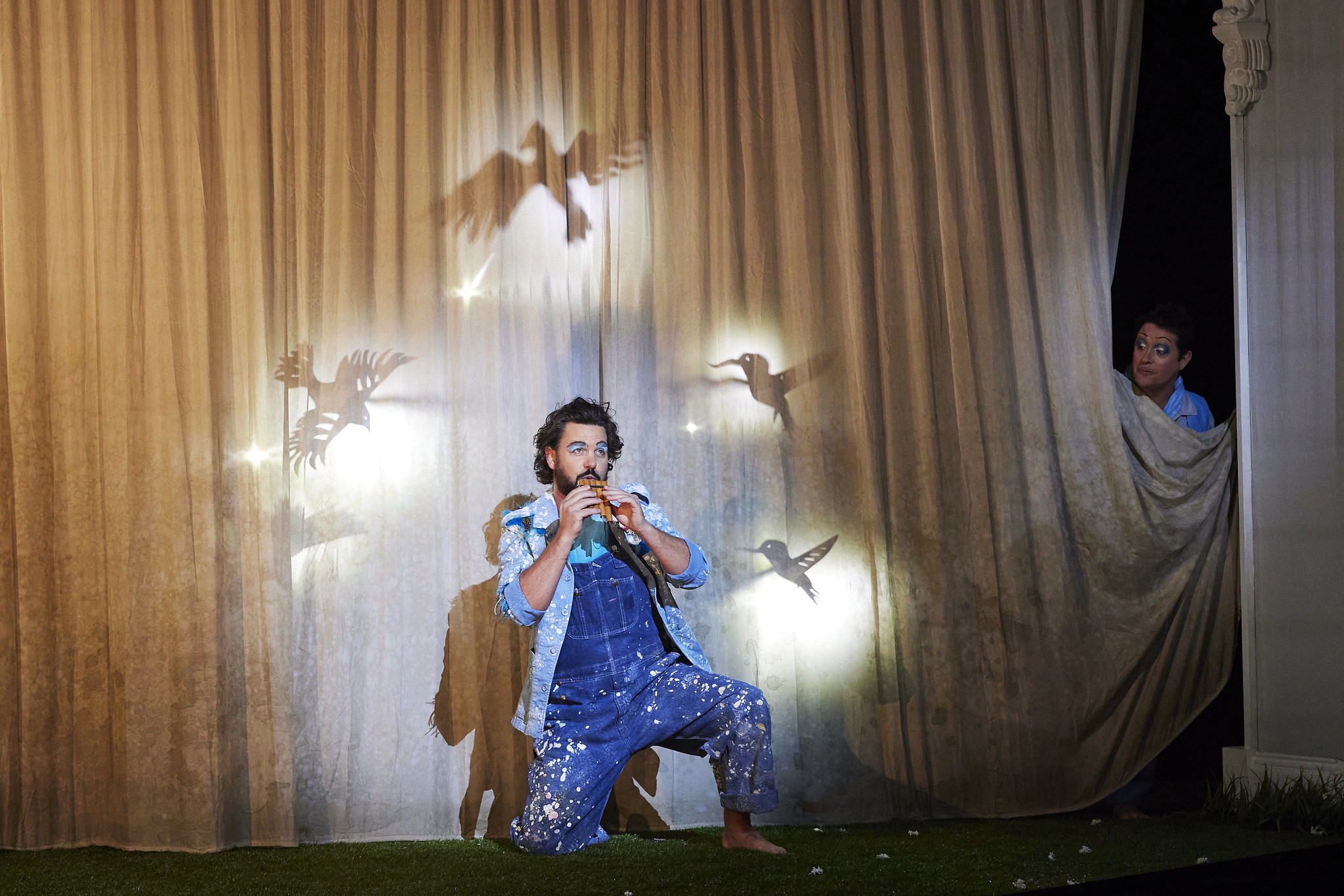
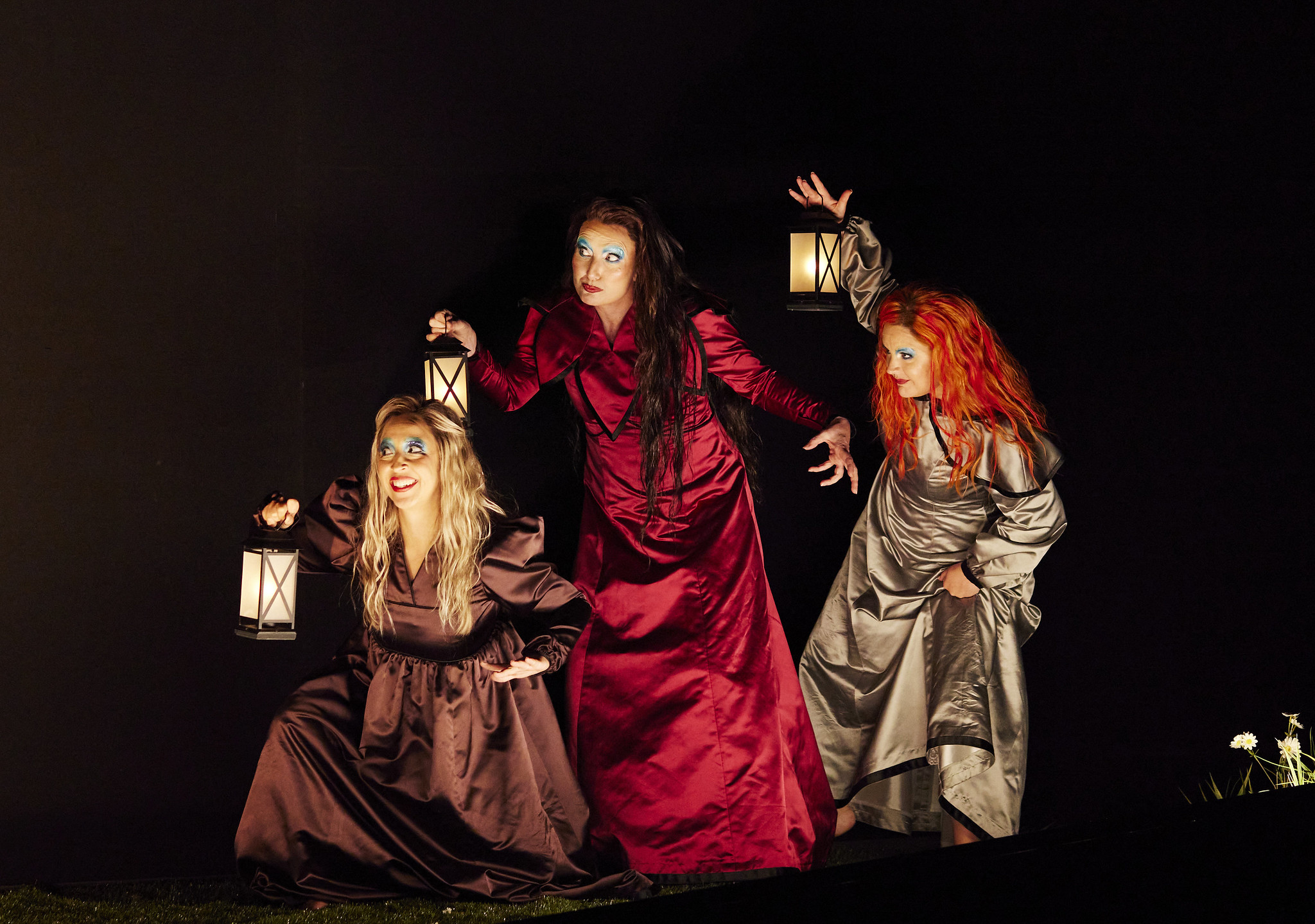
Never in a million years did I think I would hear the opera sung in English, let alone from actors with an Australian accent. While the initial lines were somewhat jarring, it quickly fell into place when Papageno uttered the iconic Aussie phrase “yeah, nah,” followed by “I’ll stay single”. Something about the laid-back accent helped accentuate the opera’s comedy and proved Australian voices had a place on the opera stage. I was all for it and judging by the riotous laughter it elicited from the crowd, I’d say everyone else was too.
At first glance, Director Kate Gaul’s reimagining of The Magic Flute is almost childlike in its simplicity. Tinsel curtains whizzing across the stage by the hand of a cast member and torchlight shadows of cut out birds on giant sheets looked like a school play. A single unadorned interior – repurposed from Michael Yeargan’s 1989 Werther – was also unashamedly drab. However, the garden at the centre, with three doors leading to unknown rooms gave the stage a sense of adventure. Designer Anna Cordingley brought the fun with colourful costumes that looked as though she raided a school’s favourite dress-up box.
Australian-Mauritian soprano Stacey Alleume as Pamina was the standout vocally. Her warm and rich voice handled the score’s nuances with ease. She truly shined in Act 2, where her vibrant voice explored the melodic lines with beauty and expressiveness. Tenor Michael Smallwood sang Tamino with delicacy and ease. His precision of pitch and light tone were a delight. 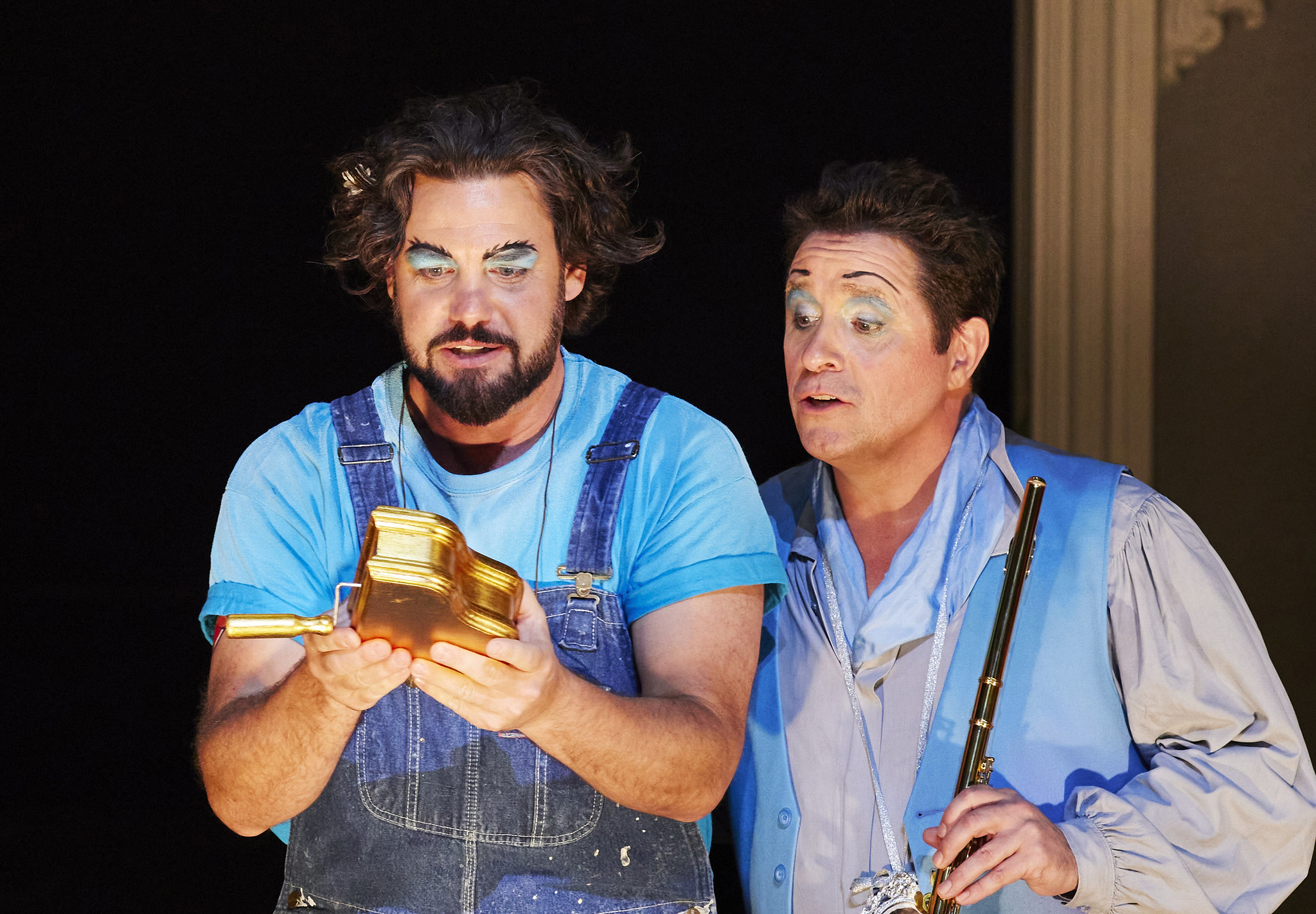
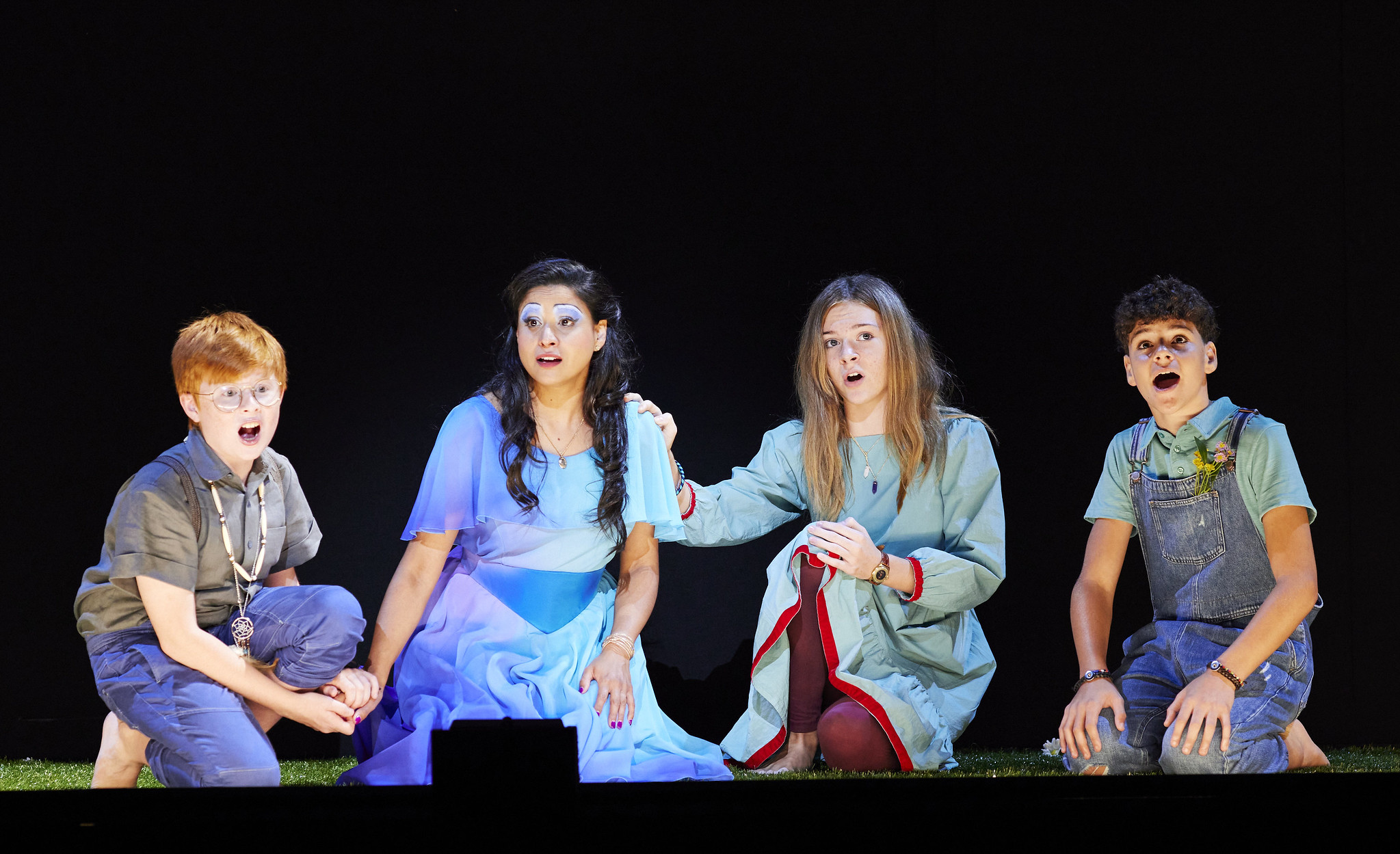
Giuseppina Grech was an arresting Queen of the Night. The Australian-Italian soprano exuded an air of pretentiousness and entertained with her condescending look over her dark glasses, glamorous black fur and exaggerated wide-brimmed hat. She tackled one of opera’s most challenging arias, Hell’s Vengeance Boils In My Heart, with ease. She nailed the coloratura virtuosity and top F with a nonchalant power and obvious conviction. Bass David Parkin’s Sarastro was wickedly cast as a gold-clad-looking Jesus. Reaching far down in the depths of the music scale, Parkin achieved a deep, gravely tone which gave his character an alluring solemnness.
Musical-theatre star Ben Mingay as Papageno brought the much-needed comic relief to the production. Mingay, best known as Buzz Graham from TV’s Packed to the Rafters, made his professional opera debut in this production. He bought an Aussie flare to the stage replacing Papageno’s birdcage with an Esky. His bass baritone was appealing but lacked the refinement usually found in a seasoned Mozart singer.
Honourable mention to the desperate and dateless Three Ladies. Jane Ede, Indyana Schneider, and Ruth Strutt who crafted an impressive and flawless trio. The Three Spirits played by Abbey Hammond, Zev Mann and James Valanidas stole the show with their carefully prepared vocals and natural stage presence. Tenor Kanen Breen, known as the clown prince of opera, playing Monostatos was also a treat.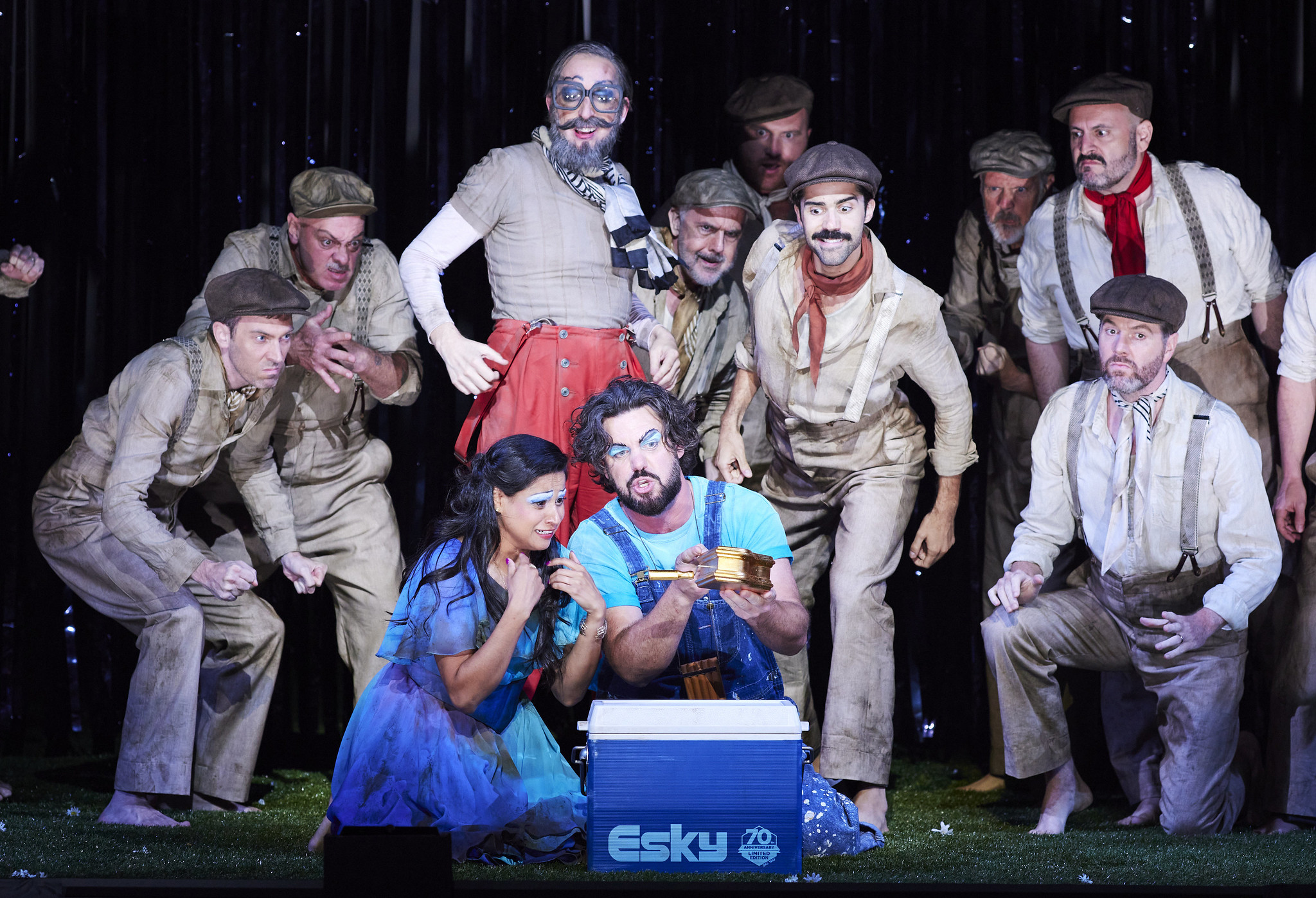
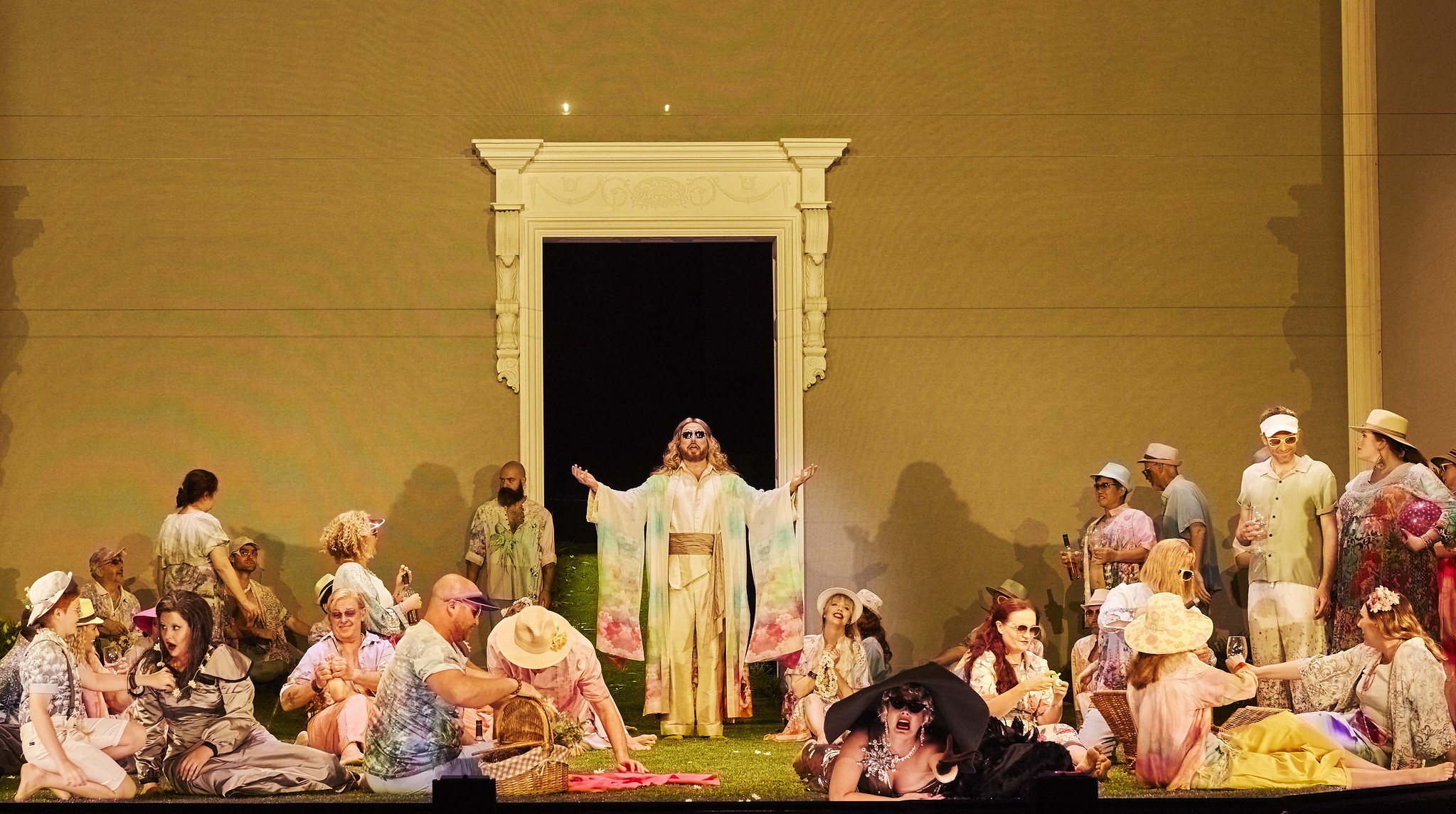
Austrian-Spanish Conductor Teresa Riveiro Böhm made a stellar Opera Australia debut conducting with a supreme understanding of Mozart’s score. Under her baton, the Australian Opera Orchestra masterfully navigated the music with a steady and deliberate tempi. The orchestra’s ability to draw out beauty and expressiveness in each piece was a testament to the players musicality.
Kate Gaul’s production of The Magic Flute moves away from the expected over-the-top exuberance normally associated with operatic works. However, it’s stripped back set, colourful costumes, and English translation is exciting and highlights Mozart’s enchanting score. This production has done well to preserve the opera’s childlike spirit, fairytale nature and musical magic. Making it a must-see for all ages.
– Antoinette Milienos
Antoinette is a Journalist, Violinist, and chronic suffer of F.O.M.O (fear of missing out).
The Magic Flute runs for approximately 2 hours and 45 minutes, including one interval. The opera plays at Joan Sutherland Theatre, Sydney Opera House through to March 16. Buy tickets now. The venue is accessible.

